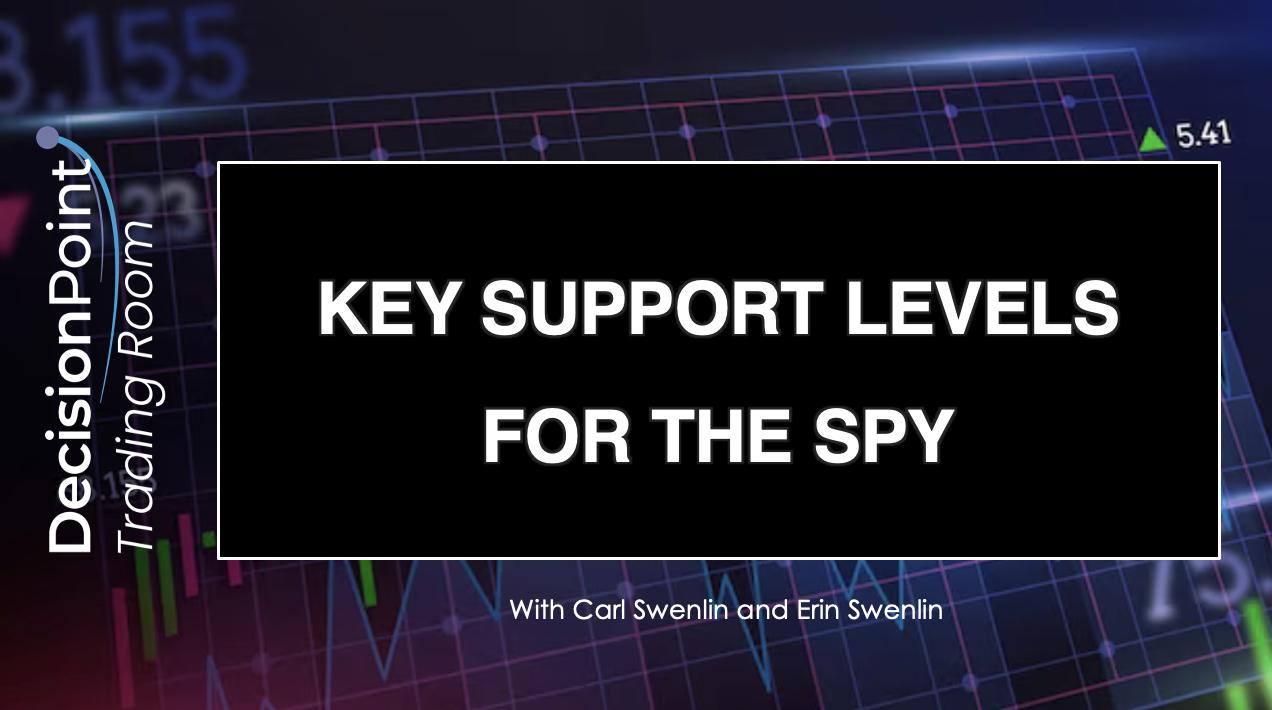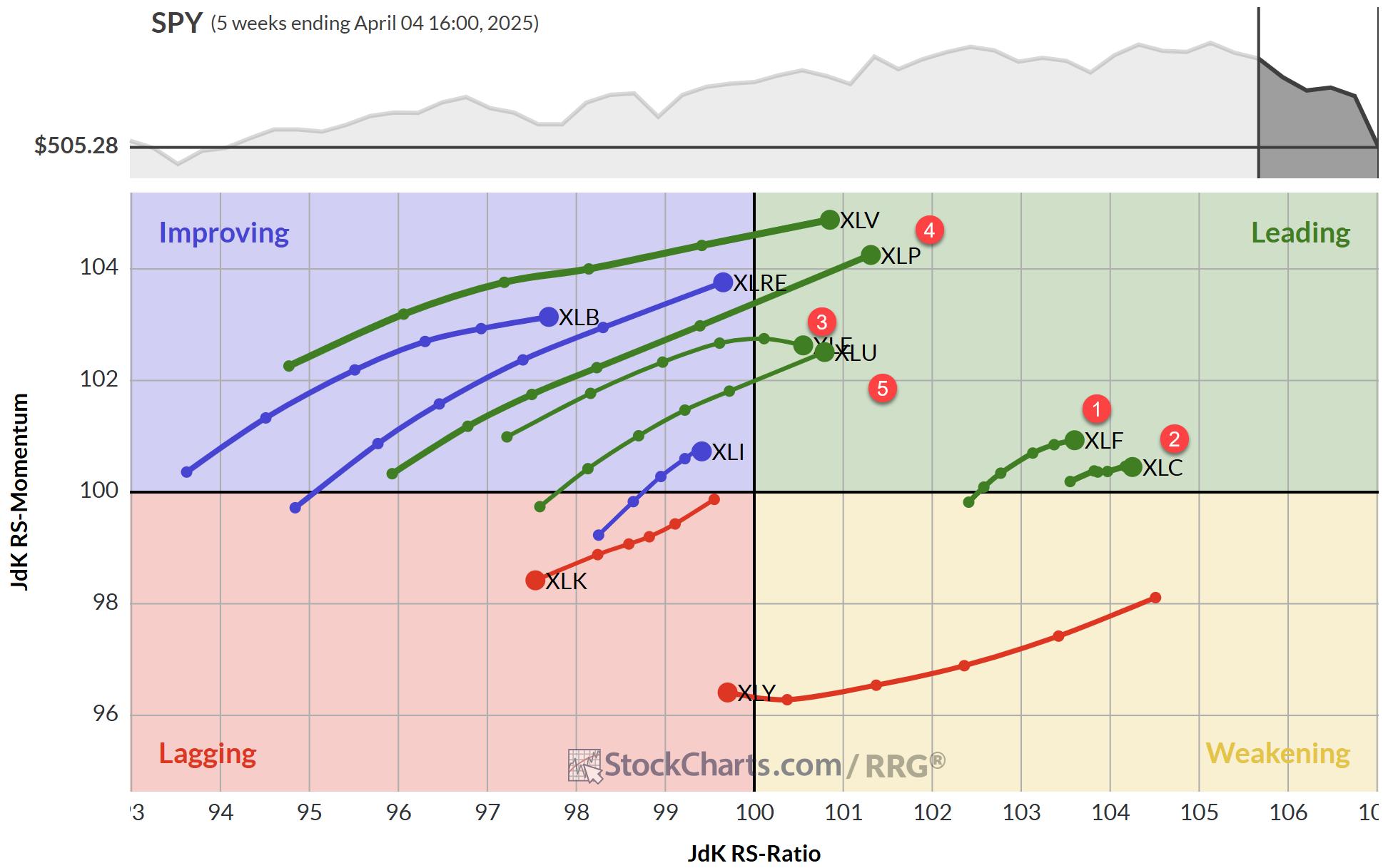Stocks were all over the place on Tuesday. The major index ETFs opened stronger, moved lower during the day and bounced in the afternoon. Despite this bounce, the major index ETFs closed lower with the Russell 2000 ETF (IWM) leading the way (-1.06%). All sectors were lower with the Finance SPDR (XLF) falling the most (-.91%). Despite widespread weakness, none of the sectors declined by more than 1%. The Home Construction iShares (ITB) and the Homebuilders SPDR (XHB) were relatively weak with declines exceeding 2%. It appears that talk of "tapering" is affecting this interest rate sensitive group. I would point out that tapering, should is occur, is not the same as tightening. It just means "less" QE, not the end of QE. Therefore, this tapering talk is probably just a distraction. Stocks have been weak because they were ripe for a corrective period. The major index ETFs are in short-term downtrends on the intraday charts and the AD Line and AD Volume Line confirm these downtrends.
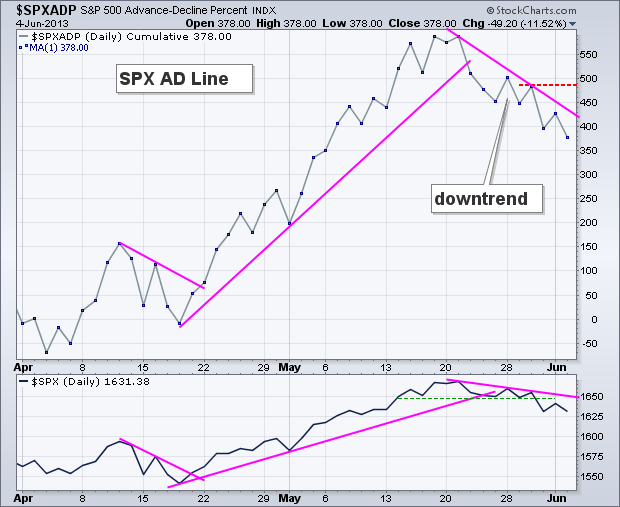

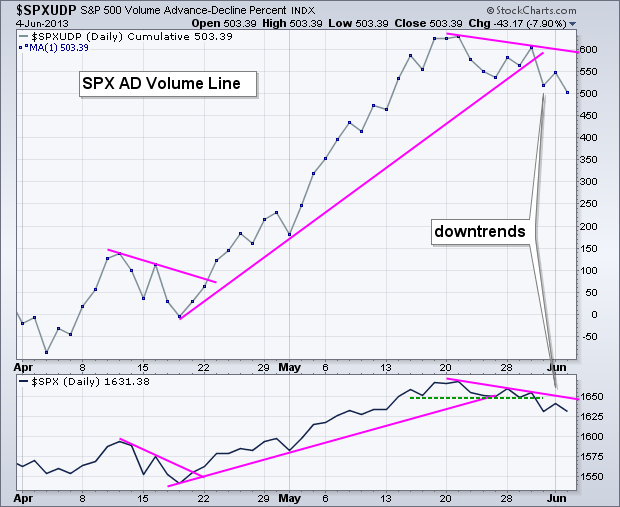
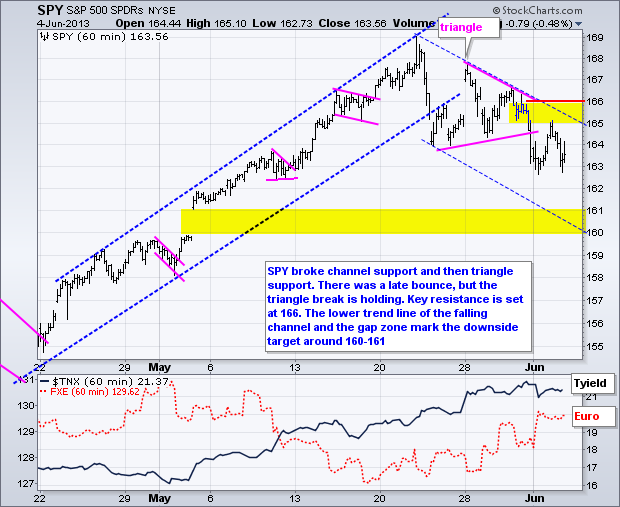
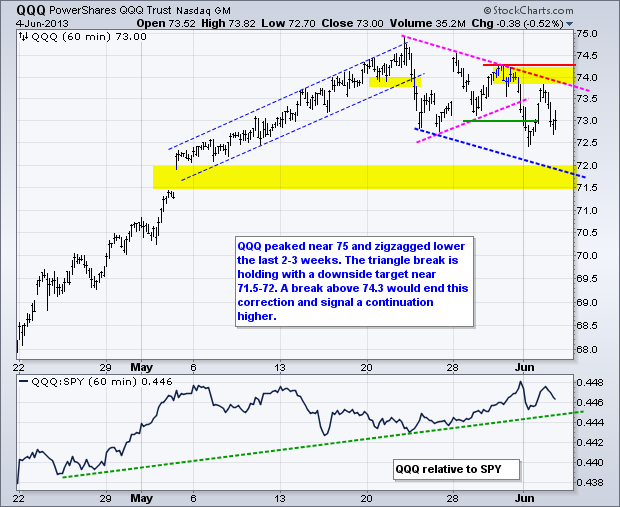
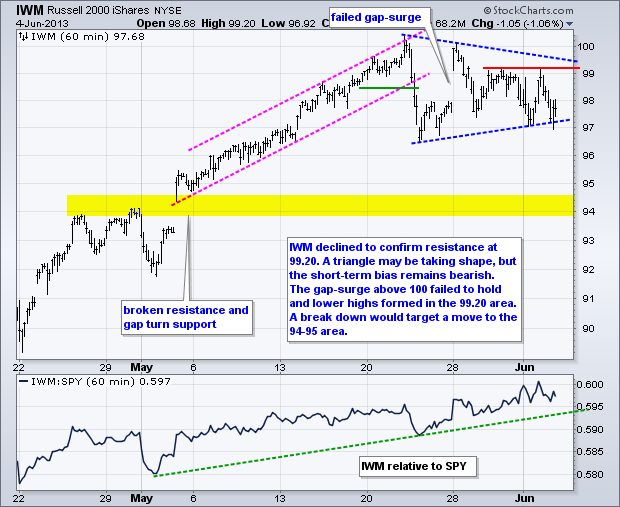
**************************************************************************
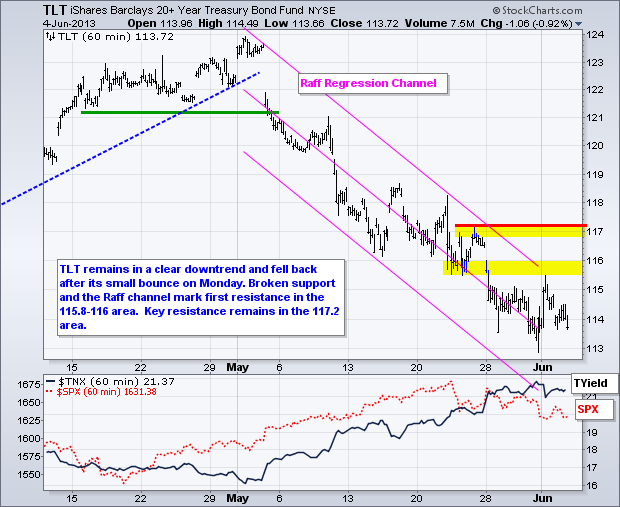
**************************************************************************
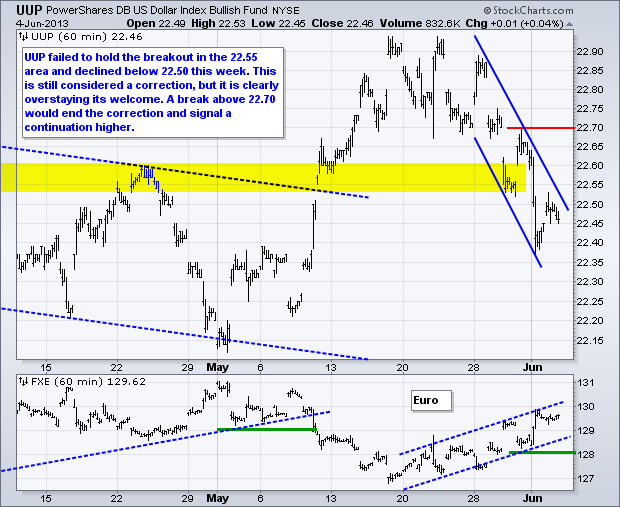
**************************************************************************
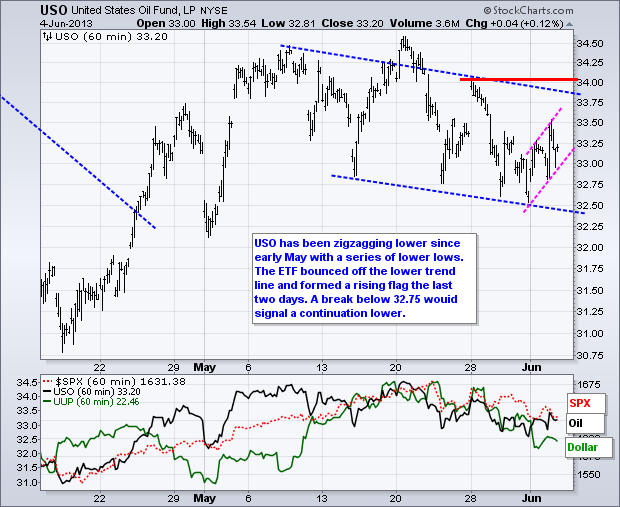
**************************************************************************
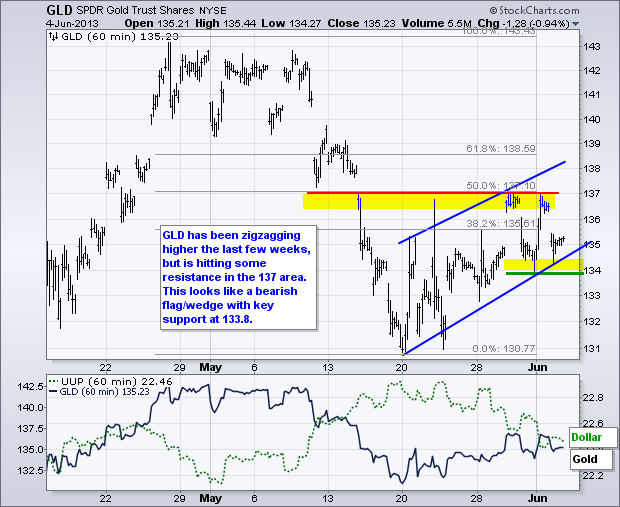
**************************************************************************
Key Reports and Events (all times Eastern):
Wed - Jun 05 - 07:00 - MBA Mortgage Index
Wed - Jun 05 - 08:15 - ADP Employment Change
Wed - Jun 05 - 10:00 - Factory Orders
Wed - Jun 05 - 10:00 - ISM Services
Wed - Jun 05 - 10:30 - Crude Inventories
Wed - Jun 05 - 14:00 - Fed's Beige Book
Thu - Jun 06 - 07:30 - Challenger Job Cuts
Thu - Jun 06 - 08:30 - Initial Claims
Thu - Jun 06 - 10:30 - Natural Gas Inventories
Fri - Jun 07 - 08:30 - Nonfarm Payrolls
Charts of Interest: Tuesday and Thursday
This commentary and charts-of-interest are designed to stimulate thinking. This analysis is
not a recommendation to buy, sell, hold or sell short any security (stock ETF or otherwise).
We all need to think for ourselves when it comes to trading our own accounts. First, it is
the only way to really learn. Second, we are the only ones responsible for our decisions.
Think of these charts as food for further analysis. Before making a trade, it is important
to have a plan. Plan the trade and trade the plan. Among other things, this includes setting
a trigger level, a target area and a stop-loss level. It is also important to plan for three
possible price movements: advance, decline or sideways. Have a plan for all three scenarios
BEFORE making the trade. Consider possible holding times. And finally, look at overall market
conditions and sector/industry performance.

About the author:
Arthur Hill, CMT, is the Chief Technical Strategist at TrendInvestorPro.com. Focusing predominantly on US equities and ETFs, his systematic approach of identifying trend, finding signals within the trend, and setting key price levels has made him an esteemed market technician. Arthur has written articles for numerous financial publications including Barrons and Stocks & Commodities Magazine. In addition to his Chartered Market Technician (CMT) designation, he holds an MBA from the Cass Business School at City University in London.
Learn More


